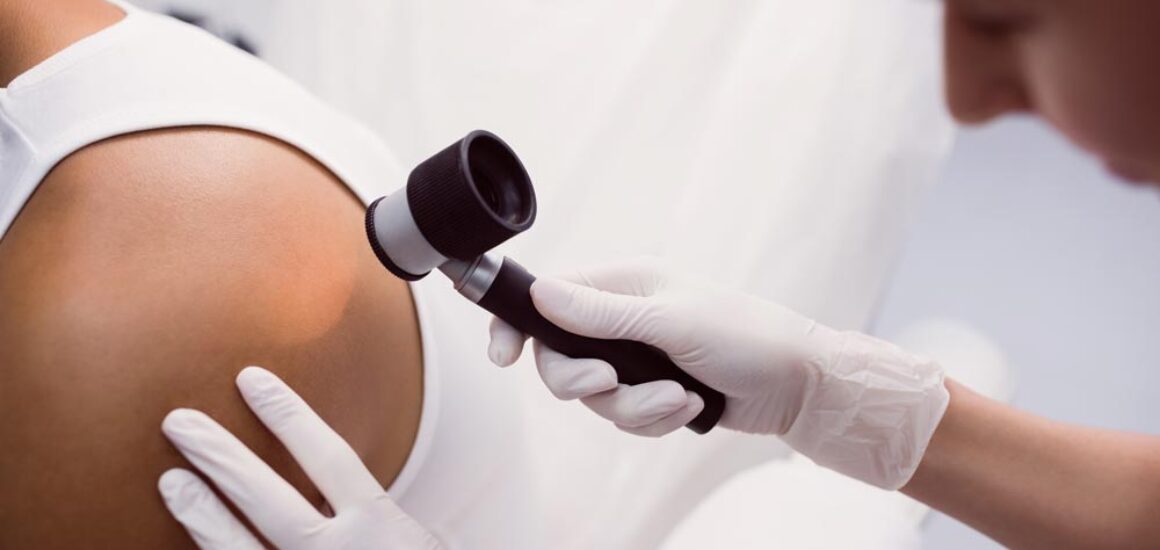Blog
Melanoma Top 5 FAQs
The American Association for Cancer Research has designated May as Melanoma and Skin Cancer Awareness Month. As a head start, we would like to talk about the top five questions asked about melanoma:
- How common is melanoma? The National Cancer Institute conducted a study and concluded that the percentage of people who develop melanoma has doubled in the past 30 years. As far as cancers go, it is the 6th and 7th most common type of cancer diagnosed in men and women, respectively.
- What are the signs and symptoms of melanoma? Any growth on the skin, like lesions and moles, can potentially develop melanoma. If you notice a mole that changes shape or appearance, or if it starts bleeding or itching, you should get it evaluated by your dermatologist as soon as possible. There are guidelines, called the ABCDE guidelines, that can help determine the need for any additional testing for your moles.
- Who is at risk for melanoma? Everyone can be potentially at risk for melanoma. However, those who have a lot of moles or those who are always exposed to the sun’s harmful UV rays, have a higher risk of developing this disease.
- How do dermatologists diagnose this disease? The most common way is to visually examine any spots on your body that they may think are atypical, precancerous, or cancerous. To get a more definitive diagnosis however, a biopsy is usually performed on the site. This means the mole is removed along with a margin of the area around it. Biopsies are outpatient procedures that can be done at your dermatologist’s office. The sample is sent to a lab to be examined and a more accurate diagnosis will be given depending on the results.
- How is melanoma treated? This all depends on the stage of the disease and the factors surrounding it. Your dermatologist can team up with a surgeon, an oncologist, a pathologist and radiologist depending on the stage of the disease. Common treatments include surgery to remove the mole and the area around it (and including any affected lymph nodes), chemotherapy and immunotherapy, and radiation therapy. Ultimately, your medical professionals will know which treatment steps to take will be best.
You can find more information on melanoma and other skin cancers on our cancer detection resource page. If you have some concerns about any moles or lesions on your body that you think might be early signs of melanoma, don’t hesitate to call us for a skin check.




